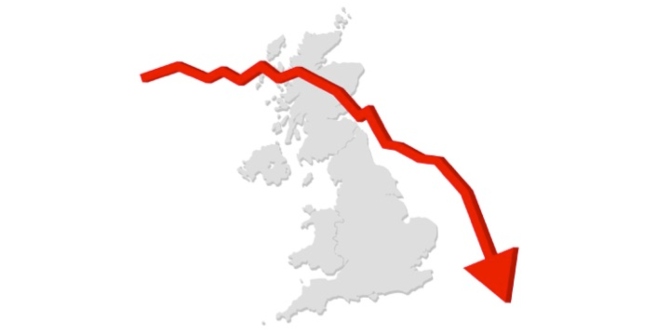
The coronavirus (Covid-19) pandemic is first and foremost one of the gravest health crises of the past hundred years, threatening to generate millions of premature deaths worldwide. But it also represents a major – and unusual – challenge for economic policymakers.
In most economic downturns, the appropriate policy response is qualitatively straightforward, if sometimes difficult to calibrate or implement. For instance, normal business cycle downturns usually represent a shortfall in aggregate demand for which the appropriate response is a cut in interest rates or perhaps a reduction in taxes and/or an increase in government spending. The Great Recession that followed the 2007-8 financial crisis was more challenging because it required not only aggressive (and, on the monetary front, novel) policies to raise spending but also measures to repair and reinforce the financial system.
The coming economic downturn is unusual, however, because it is a direct consequence of the actions taken to deal with the health crisis and, in particular, to flatten out and delay the peak in infections so that health systems can cope and so reduce the mortality rate. But that has necessitated draconian limitations on people’s ability to go to work, school and shop. It is not implausible that the consequence of the lockdowns now in force will be to reduce economic activity by somewhere between a quarter and a third, for so long as they are in force. If the lockdowns are in effect for, say, three months that would knock something like 6-8 percentage points off annual GDP. That is a comfortably larger decline in GDP than during the Great Recession. And with the possibility of a second wave of infections occurring when restrictions are eased, necessitating their re-imposition or retention, the economic costs could turn out to be even larger.
The impact on economic activity comes through several channels: forced reductions in supply because of a reduced ability to operate effectively and disruption to supply chains; and forced reductions in demand, especially for many consumer goods and services. In some industries, the fall in supply may be the dominant factor, in others it may be the fall in demand that matters more. And, significantly, those effects are almost entirely due to the disruptive effects of the lockdowns, not the direct consequences of people falling ill and being unable to work.
In these circumstances, the aim of policy should not be to boost demand – more people shopping would just aggravate the health crisis after all – but rather to ensure that the present hiatus in economic activity does not lead to lasting damage to the supply potential of the economy and a lower level of activity that persists after the resolution of the health crisis. That means avoiding perfectly good businesses being needlessly driven into bankruptcy, and the associated destruction of jobs and livelihoods. In essence, the state needs to play the role of ‘insurer of last resort’ to keep the economy ticking over, so that it can quickly re-start once the emergency has passed.
The raft of measures announced by the UK authorities since the beginning of March are designed to achieve that end. These include measures such as the government’s Coronavirus Business Interruption Loan Scheme to bolster the supply of finance to small and medium enterprises and the Bank of England’s Covid Corporate Financing Facility which will provide finance for larger firms. But loans are unlikely to suffice – especially if the duration of the restrictions is long – as the hangover of excessive debt will weigh on businesses’ future ability to operate. So grants and transfers must be part of the mix too. Such measures include: selective business rates relief and tax holidays; the Coronavirus Job Retention Scheme (CJRS), replacing 80% of the pay of workers who are temporarily laid off (‘furloughed’); and the Self-employment Income Support Scheme that does the same for the self-employed. Finally, for individuals who fall through the cracks, access to universal credit has been eased.
These measures will be expensive and in some cases those costs are hard to predict. For instance, the Institute for Fiscal Studies has calculated that the CJRS, if taken up by 10% of the workforce and lasting just three months, will cost around £10 billion. But take-up could easily be twice that or the duration twice as long, in which case the costs would rise to £40 billion. In addition, the reduction in activity will lead to a sharp fall in tax receipts. Together with the costs of the measures, the budget deficit could easily top £200 billion this year according to the Institute for Fiscal Studies. That is nearly 10 per cent of GDP, the same level reached in the Great Recession.
Although such a deficit is large, it is not unreasonable in the circumstances. It is appropriate for governments to borrow heavily during ‘bad’ times – such as major wars, financial crises and natural disasters – provided that they compensate for that in the ‘good’ times by running a small enough primary deficit (or a large enough surplus) to gradually bring down the ratio of public debt to GDP, so creating fiscal space to cope with the next bad event that comes along. In this way, the costs of dealing with such bad events is shared across successive generations of taxpayers.
The high prospective deficit will, however, offer a financing challenge. Relatively high gilt redemptions mean the government would need to sell about 6 per cent of GDP in new gilts even without the Covid-19 shock. On top of that comes another 10 percentage points or so associated with coronavirus. That is a lot for financial institutions to absorb. In such circumstances, however, it would – in my view – be entirely appropriate for the Bank of England to help out by buying some of them – directly from the government in the primary market, should that prove necessary. In that way, the state’s financing needs would be partially met by an increase in bank reserves instead. Since reserves pay interest at Bank Rate, that is equivalent to financing the some of the deficit with debt of very short maturity instead of the normal long-maturity debt.
Some readers will no doubt worry that such ‘monetary financing’ is putting the UK on the road to high, or even hyper, inflation. But similar episodes in the past – for instance, under the Weimar Republic a hundred years ago or Zimbabwe in the late 1990s – have invariably been associated with fundamental underlying political and structural problems. That would not be the case today. But it is important that if the Bank of England does end up absorbing a lot of the new gilt issuance, then it is explicitly understood to be a temporary expedient, with the Bank’s purchases being unwound promptly once the crisis has passed. If that is done, I see no reason why the financial markets need worry unduly about any inflationary consequences.
♣♣♣
Notes:
- The post expresses the views of its author(s), not the position of LSE Business Review or the London School of Economics.
- Featured image via PublicDomainPictures, under a Pixabay licence
- When you leave a comment, you’re agreeing to our Comment Policy.
 Charles Bean is a professor of economics at LSE, the economy expert in the executive leadership of the Office for Budget Responsibility, and chairman of the Centre for Economic Policy Research (CEPR). From 2008 to 2014, he was deputy governor for monetary policy at the Bank of England, serving on both the Monetary Policy Committee (vice-chair) and the Financial Policy Committee. In that capacity, he held specific responsibility for overseeing the Bank’s monetary analysis and market operations. He also represented the Bank in international fora, including the G7 and G20. Prior to that, he was the Bank’s executive director for monetary analysis and statistics, and chief economist. He was knighted in 2014 for services in monetary policy and central banking.
Charles Bean is a professor of economics at LSE, the economy expert in the executive leadership of the Office for Budget Responsibility, and chairman of the Centre for Economic Policy Research (CEPR). From 2008 to 2014, he was deputy governor for monetary policy at the Bank of England, serving on both the Monetary Policy Committee (vice-chair) and the Financial Policy Committee. In that capacity, he held specific responsibility for overseeing the Bank’s monetary analysis and market operations. He also represented the Bank in international fora, including the G7 and G20. Prior to that, he was the Bank’s executive director for monetary analysis and statistics, and chief economist. He was knighted in 2014 for services in monetary policy and central banking.






Very Insightful!!. When we say “In some industries, the fall in supply may be the dominant factor, in others it may be the fall in demand that matters more”, may i ask, which are those industries. Is there are study which i a read through? Also, what would be the impact on prices for different intermediate and end user products, since there seems to be significant change in Supply and Demand Dynamics.
Charles,
Now that we are out of the EU, technically, the UK is not bound by Article 123 Lisbon Treaty,
Therefore, our Bank of England can create money to credit the Government’s account.
Under Quantitative Easing, because of Article 123, this newly created “debt-free” money could not be spent by the UK Government in any other manner but to purchase its own IOUs from the market.
Without that stricture, is there any reason why the UK cannot spend this money itself in the UK economy to finance all or a chunk of the costs of the Covid 19 crisis?
If the economy was running at an optimum rate with full employment and therefore very few unused resources, such extra money being printed by the Government would cause inflation.
However, every single forecast by every single economist sees that this crisis will result in a slowdown in the economy and an increase in unemployment viz a Recession.
Therefore an injection of, say, £100 billion of the above new money into the economy would help to keep up the demand in the economy as well as save the government having to issue its IOUs – Loan Bonds – and so save yearly interest and redemption in five or 10 years time.
So, the question is, although the government is printing a huge amount of money, why is it constraint now by Article 123 and why can it not create its own Sovereign Money?
This is not the idiocy of the 1921 Weimar Republic of 2008 Zimbabwe.
Jim Murray
A couple of stray thoughts occasioned by your very useful post.
I suspect that some people who are furloughed (even if at 80% of normal income) will perceive themselves as better off (in terms of subjective utility). The costs associated with having a job or being at work are not negligible: it’s not just travel costs but also shop-bought-sandwich-at-desk costs and coffee-in-popped-out-to-cafe costs that come into the equation. A reappraisal of the role of paid work in lifestyle might contribute to a post-crisis shake-up in the labour market. As may job opportunities explored on a speculative basis whilst ‘off work’ (e.g. care-type jobs involving collection and delivery with associated social interaction benefits for the clientele). Consequent unforeseen post-crisis labour scarcity in conjunction with sudden expression of pent-up consumer expenditure (associated with unexpected savings accumulated during lockdown) could fuel an inflationary spasm. As could some price increases to reflect long-postponed adjustments required by the old financial crisis but heretofore resisted.
More beneficially perhaps, increases in interest rates that might be necessary to accommodate absorption of government debts internationally could stimulate an overdue (downward) adjustment in the UK housing market (albeit embarrassing any government budgetary strategy). Less threateningly, the fact that all governments of comparably developed nations have adopted similar financial strategies (upping state indebtedness) might mean that the relevant international relativities aren’t unduly disturbed (hence without further deleterious exchange rate effects fo the UK).
I agree and suggest that the application of ‘sovereign money’ can and should be wider and regular. See my ‘Basic Income and Sovereign Money – the alternative to economic crisis and austerity’ http://www.palgrave.com/gb/book/9783030367473
V insightful comments by Charlie. Since Jan 20 after listening to a speech by Chairman Xi urging the world to focus on Bio-security and following health experts at CDC, PHE, ECDC and WHO, I have been stressing “how different” this crisis is. 200+ country impact, loss of nearly 1.45 mn lives….unparalleled impact in a global world.